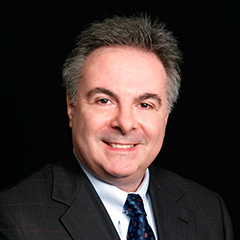Where organic search is the long game, paid search is a lever we can pull when we need faster results. By utilizing paid advertising channels right away, we begin to establish a footing among competitors and start to generate leads independent of organic search. When we employ paid advertising in Google and Bing (Pay-Per-Click, or PPC) for the doctors and medical spa clients we serve, we target people much further down the sales funnel. These are consumers who have moved beyond searching for information about specific products or services, and are much closer to making a purchasing decision.
Partner With the Best & Brightest
Based on expertise, performance, and volume of paid advertising, we have earned distinctions as a Google Premier Partner, Microsoft Advertising Certified Profesional, and a Bing Ads Accredited Professional.
We also support social media channels which have evolved into “pay to play” networks. When social media first became popular, businesses knew they had to have profiles but they didn’t know exactly how to leverage them. It was sort of like free advertising as it was a platform to share whatever you wanted with people who liked your business. As it matured and captured more than a billion users across multiple platforms, developing advertising channels within these networks became a very obvious opportunity. Now it’s likely businesses won’t see reasonable ROI without investing some budget into these channels.
So, what does that mean for your business?
Understanding PPC
Pay-Per-Click or PPC. It’s the common terminology for search advertising, and means as an advertiser you are paying for every click you receive. The rabbit hole is deep in the PPC world, and while our clients don’t need to know the details about the numerous variables like negative keywords, quality scores, and ad extensions, it’s important that our team understands all of this to utilize our clients’ budgets most effectively.
PPC is widely misunderstood. It’s not a “set it and forget it” service. You can’t just turn it on and turn it off. It tends to see results much more quickly than other services, but to maximize your investment it must be constantly managed. Our teams know this, and that’s why we have eyes on our clients’ campaigns at all times. Our teams are behind the scenes adjusting keywords, managing bids, testing landing pages, editing copy, reviewing demographics of regional targets, and even adjusting the days and times our clients’ ads are displayed.
Because PPC can be so finely tuned, we believe it has a place in every client’s marketing strategy.
Why Should I Advertise on Social Media?
As we said, social media has become a “pay to play” platform. Simply having a profile and posting updates to your fans won’t maximize the potential. Engagement is still a key part of social media, and as a business you must be active and interact with your fans. However, you must understand your reach, and with nearly 2 billion users on Facebook, how can your one post remain relevant and alive to ensure people actually see you? That’s where advertising comes into the picture.
By advertising on social media, you can target your audience to the smallest details because Facebook, for example, is a platform built upon understanding people’s likes and behaviors. You can show your ads to people who have chosen to follow you and to those who don’t even know you exist, but may be looking for your products or services. The reasonable cost for advertising on these platforms also makes them very appealing.
One more exciting aspect of advertising on social media channels in the healthcare industry is that retargeting is an avenue open to you, unlike on Google. This allows us to specifically show your ads to people who have previously clicked one of your ads or visited your website.
How Paid Advertising Is Different at Etna
At Etna, we don’t just check the box and tell you we’re doing your marketing—we set goals with you, create a marketing strategy that utilizes the tools you need, and set performance targets for ourselves, monitoring our results and adjusting course if necessary. That means when it comes to paid advertising, we have to be aware of performance at all times. We have to know when to scale up, scale back, or add variants at our disposal.
We have three different levels of paid advertising service based on your specific needs. Some clients just need light support with singular channel advertising, while others need all four channels fully engaged with unique landing pages built specifically to speak to the ad content. Our strategists and marketing teams will assess your needs and create a strategy and marketing plan designed specifically to meet your goals.


